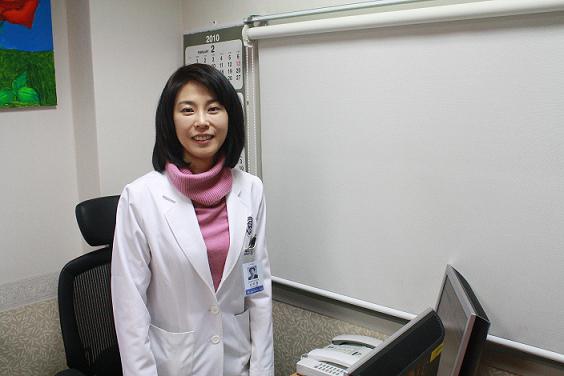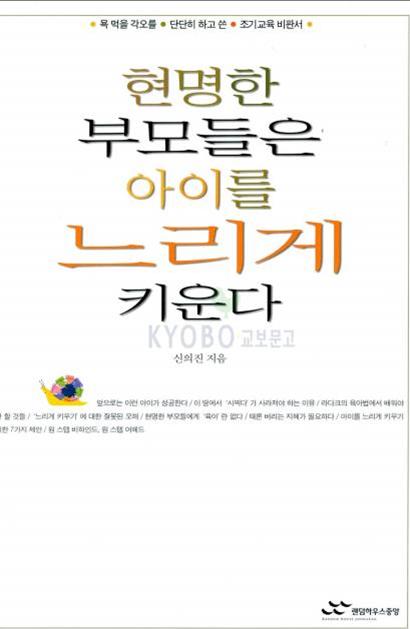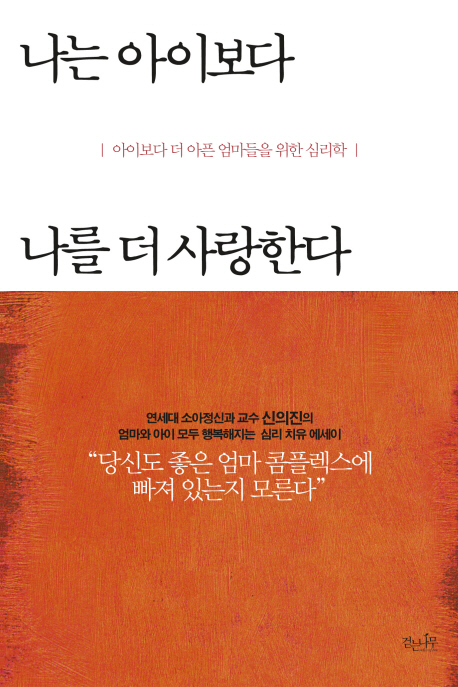No. 1 child psychiatrist, Shin Yee-jin's joy and grief

IN EVERY field of society, "star" always stands for the best. A "star player" is an athlete who performs a brilliant exploit and helps achieve victory for the team. In the medical arena, Shin Yee-jin ('83, Dept. of Medicine) is a "star doctor," having an average of 600 consultations a month with parents and children. She became known to the public as the personal doctor of Nayoung (alias), the victim of the Cho Doo-soon case*. As the No 1. child psychiatrist in Korea, and the best-selling author of books on childrearing as well, she tells The Yonsei Annals about her love and passion for life, work, and Yonsei University.
Annals: When did you first decide to become a doctor?
Before dreaming of entering medical school and becoming a doctor, I had a strong desire to have my own job when I grew up, which was an uncommon thought for a female student during those days. During my high school years in Busan, there were many friends whose dream was to become a "wise mother and good wife." Moreover, my mother, who was very conservative, thought that I should be good at household affairs and take the role of a good mother in the future, although at the same she wanted me to get good grades at school. My father, however, as a working employee, showed me that the outside world is full of chances and open to anyone willing to succeed. After a careful comparison between medical school and law school, I finally chose the former, since I wished to help heal others' wounds.
Tell us about your campus life at Yonsei University.
During my premedical course, I had not enjoyed myself, as many other friends did, because of my inner worries. I was lost in meditation, always pondering upon my identity and what kind of person I should be. If you went back to the Yonsei campus in 1983, the girl on the bench blankly staring into space, with Louise Rinser's novel at her side, would be me. I tried some dongahree activities like Orpheus, playing the classical guitar, and joined the tennis club, but they could not entirely alleviate my emptiness. I slowly moved away from these activities naturally, as my studies at medical school became tougher. Meanwhile, a big incident happened to me when I was a sophomore — one of my best friends died of anemia. I felt great sorrow, and suffered from severe depression for a year. As I realized, through my own unstable campus life, that people who seemingly have no problems can also be unhappy, I became curious about people's inner minds and wanted to know more about this field. I think that is why I chose to major in psychiatry and become a psychiatrist.
Then, after having achieved your goal, when do you feel most rewarded as a psychiatrist?
Parents sometimes visit me with their son or daughter when they have trouble adjusting to school life, especially in regards to friend relationships, late linguistic development, etc. In most cases, the problem does not lie with the child, but in the mothers, who build most parts of the children's environment. Mothers in such cases feel anxious about themselves, and enforce early education for the child, ruining healthy development. I try to make better nurturing environments through counseling with parents and prescribing drug treatments. The problems of children are naturally resolved when the parents change after consultation. One day, a mother came with her four-year-old child, who showed the symptoms of acquired autism. He could not say a single word and avoided eye contact when speaking, although he had no physiological problems. It was because his mother had forced him to watch English video tapes for seven hours a day when he was a baby. He even had the possibility of becoming permanently handicapped without proper treatment. Through years of talking therapy and drug treatment, however, he came back to normality, and could start a new life around the time when he entered elementary school. I breathed a sigh of relief and felt rewarded for my efforts when I saved this child, who came near to losing hope for good, as I am also a mother of two children.
You were the doctor of Na-young, victim of the Cho Doo-soon case. While solving the case, what did you think were some of the biggest problems our society faces?
In the beginning stages of treating Na-young, I was shocked to find out that no one sincerely cares about the recovery of the victim of sexual assault. The government and the whole society seemed only to be obsessed with punishing the assailant, focusing too much on who Cho Doo-soon is, and how he committed his brutal misdeeds. When sexual crime occurs in Korea, people become outraged by the offender's cruel actions and argue that the government should strengthen prison sentences. There is no proper relief system for the victims, who have to live with their scars. I had seen many victims get hurt again because of this weak system and worried that Na-young
would also be neglected. Therefore, I tried to highlight Nayoung's pain to the public and criticized the government's
insufficient actions in dealing with child molestation. I succeeded in raising a recovery fund for her whole lifetime, but more victim-centered policies are needed for others like Nayoung. The Sunflower Children's Center helps the victims and families in child sexual assault cases through medical care and legal support, under the authority of the Ministry of Gender Equality. However, the Ministry for Health, Welfare, and Family Affairs should take responsibility for more professional care because saving someone's life is not a social issue, but a medical case that requires professional knowledge.
Do you have any last words for Yonseians?
I always feel indebted to Yonsei University because I gained so uch during my university life, which cannot be put at a price. If you look around yourself, there are many friends and upperclassmen who can be a great help in your life. Yonseians are often compared to grains of sand because of our relatively weak cohesion. However, the academic traditions, including its Christian philosophy, are invaluable resources that only Yonsei University has; they can be a great chance to make students emulate each other through freedom and mutual respect. Moreover, I
hope you pay back what you have earned in college to your alma mater in the future. I regret today that I could not
make full use of the all resources of Yonsei University when I was an undergraduate, but I still plan to repay Yonsei someday for all that it has given me.
Shin Yee-jin's bestsellers recommended to future wise parents
Wise Parents Bring up Their Children Slowly (2000)

In this book, she criticizes Korean parents' excessive passion for early education. She discussed what she had learned through trial and error, both as a child psychiatrist and a mother of two children. The book also provides tips for parents on a case by case basis, such as "When the baby wakes up and cries in the middle of night." The book was exported to China and Japan after translation.
Location: 649.1 000노, Social Sciences, Science &
Technology Collection, 3rd floor at the Central Library
I Love Myself More than My Child (2009)

Mothers are thought to be always selfsacrificing and willing to do everything for their children. Shin is opposed to this attitude because it could rather ruin the children's emotional development and even hurt the mother herself. Diagnosing what kind of parents the readers might be, the book tries to heal the hurt of mothers who have fallen in to the "good mother complex."
Location: 649.1 009기, Social Sciences, Science & Technology
Collection, 3rd floor at the Central Library
* Cho Doo-soon case: Na-young was beaten and raped in December 2008 by Cho Doosoon, who was sentenced to 12 years in jail by the Supreme Court last September. The violent acts against Na-young severely damaged her internal organs, and the girl has suffered from serious physical and mental damage.

